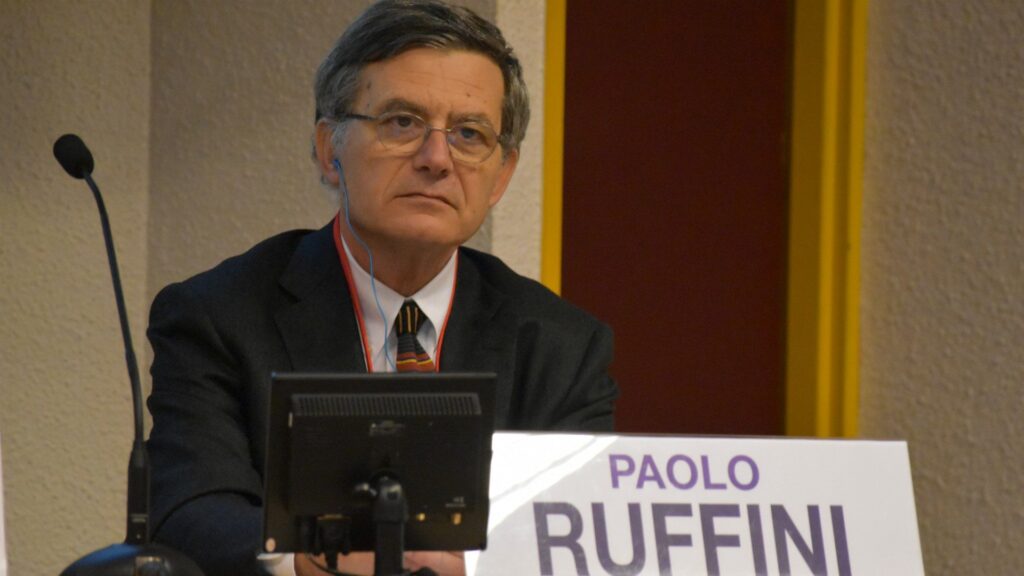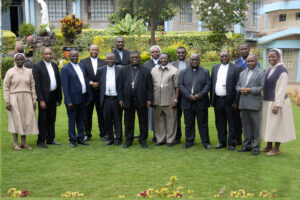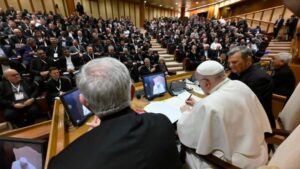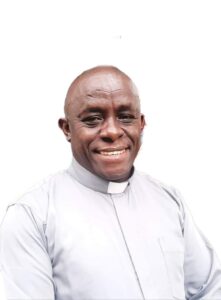SECAM: Prelates in Africa asked to Give SECAM Visibility Through Media

Dr Paolo Ruffini
Sr. Jecinter Antoinette Okoth, FSSA
The Vatican through the Dicastery for Communications, has emphasized to Catholic prelates in Africa at the ongoing 19th Plenary Assembly of Symposium of Episcopal Conferences of Africa and Madagascar (SECAM), the need to make the world know more about SECAM through the media.
In his Tuesday, July 26, goodwill message to delegates from across the continent and beyond in Accra, Ghana, the Prefect of the Vatican Dicastery for Communications Dr. Paolo Ruffini said, “I am pleased to remind you that this globalized world needs to hear about you too, and about what you are doing as a local church in your various dioceses. This is very important. It is because of this that Vatican Radio is your radio.”
Based on this request, Dr. Ruffini the first Lay person to head the Dicastery of Communication called for increased collaboration, cooperation and networking saying, “Together, through the radio, through the web, through social media we can build a system with the mission of feeding the word of truth, based on the experience of Pentecost interwoven with the spirit of sharing instead of the one of Babel.”
The Vatican representative complimented the existence of media platforms in the Church and recognized “the ongoing efforts in communication at all levels, mostly through the flourishing of radio and TV stations wherever they operate in the Church, the Family of God, on the continent, abroad and online.”
“Most of these radio stations are re-transmitting Vatican Radio daily bulletins, broadcasts in English, French, Portuguese, Kiswahili and occasionally many other African languages,” Dr. Ruffini said to delegates at the Ghana Institute of Management and Public Administration (GIMPA) Conference Centre adding that, “These daily radio broadcasts, consisting of a daily, up-to-date and verified news about the Holy Father and the various Dicasteries of the Holy See are assuring to the people on the Africa continent and in the world at large.”
Dr. Ruffini appreciated SECAM’s decision that was made after its Golden Jubilee in Kampala, Uganda in 2019, to support communication for harmonious mission work.
“We commit ourselves to give our full support to Catholic communication professionals so that they can harmoniously carry out their mission and always seek to establish a relationship of ecclesial communication with international organizations. SECAM will further strengthen its organ of communications to optimize its evangelizing resources towards a plan of communication at the continental level,” Dr. Ruffini cited message from Kampala Document during the plenary that is held under the theme, “Ownership of SECAM; Security and Migration in Africa and the Islands.”
He added, the document “entreats the national episcopal conferences to engage fully in technical, doctrinal and moral formation of all pastoral agents working with the media. With proper guidance, they will ensure that they are not afraid to express their faith in the world of communication as the explosion and globalization of social networks make this commitment more urgent than ever today.”
In his Tuesday message at the plenary that commenced July 25 and will end August 1, the Prefect of the Dicastery for Communications appreciated the revitalization of the Pan African Episcopal Committee for Social Communications (CEPACS) for the good strides made for the nomination of its President, Bishop Emmanuel BADEJO, as a member of the Dicastery for Communication.
Therefore, in collaboration with CEPACS, he noted that SECAM in the Kampala Document called upon Catholic institutions for education to engage in training communication studies.
“We are urging the Catholic universities and higher educational institutions to ensure the best training in social communication studies at both the human and professional levels,” reads part of the good will message adding, “Obviously, techniques, communication skills, and the media culture should have a significant place in all the fields of formation and of the curricula to.”
He underscored that “It is the duty of all to project objective image of Africa in the local and international media in order to correct the often “apocalyptic” or “catastrophic” image of the continent. Without any doubt, communication constitutes the first field and form of charity and love.”
Dr. Ruffini echoed Pope Francis’ message on the need to “pay particular attention to assist people, especially the young to develop a sound critical sense, to distinguish truth from falsehood, right from wrong, good from evil, and to appreciate the importance of working for justice, social concord, and respect for our common home.”
“This is a significant contribution to the diffusion of a culture of peace grounded in the truth of the Gospel, for communication is not just a profession, it is also a service to dialogue and mutual understanding between individuals and communities for the pursuit of a serene and peaceful coexistence,” the Vatican official narrated.


